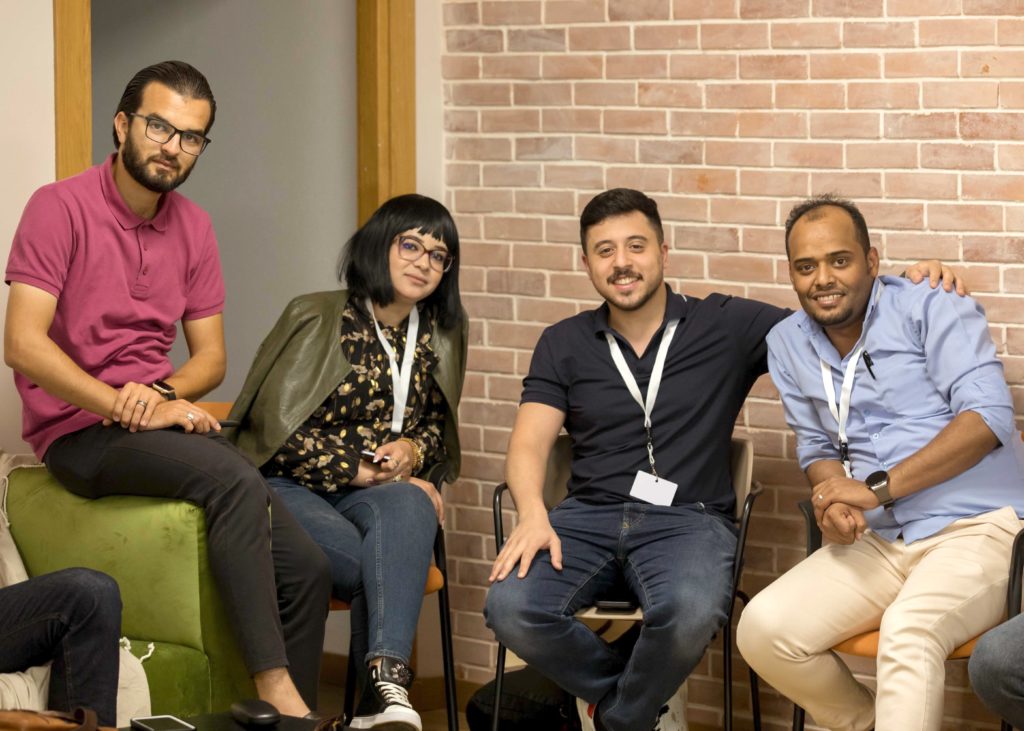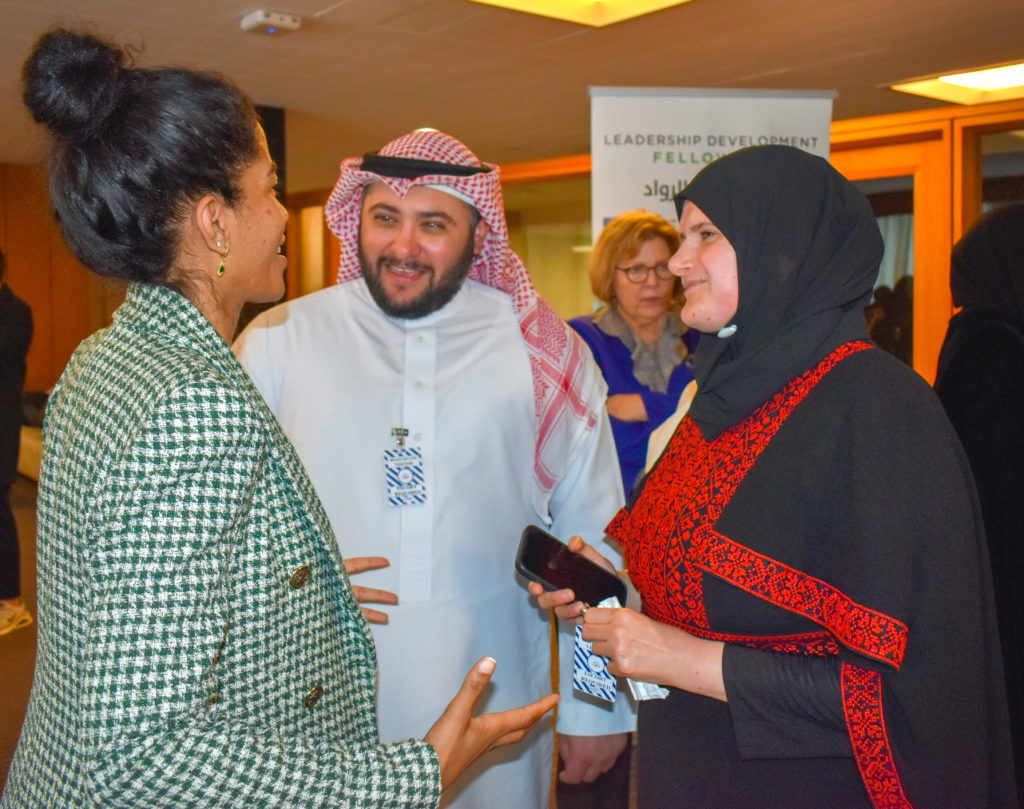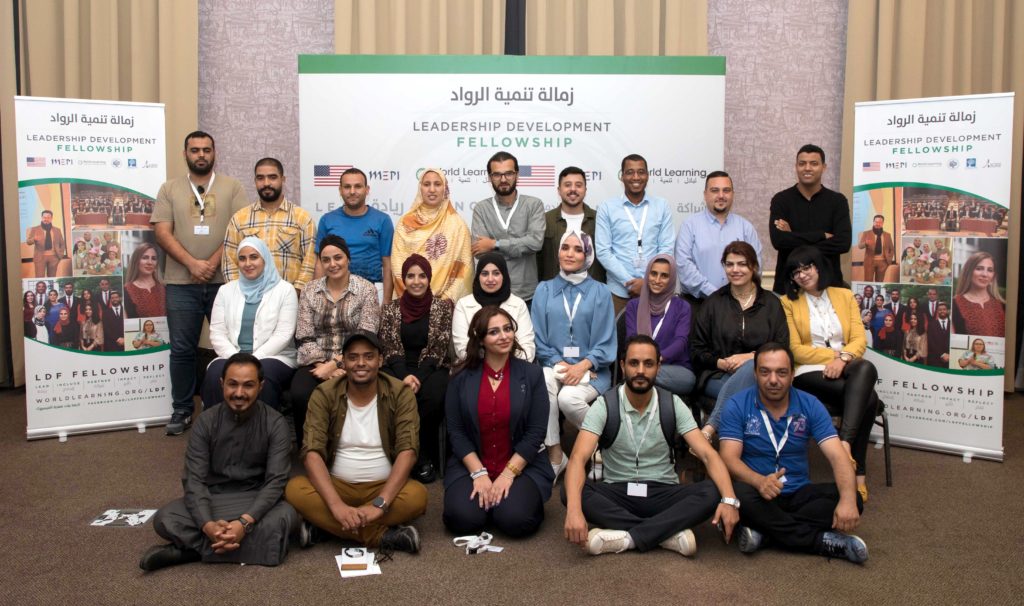-
What We Do
- WHERE WE WORK
-
About Us
 Welcome Message from Carol Jenkins
Welcome Message from Carol JenkinsFor more than 90 years, World Learning has equipped individuals and institutions to address the world’s most pressing problems. We believe that, working together with our partners, we can change this world for the better.
On my travels, I’ve had the opportunity to meet with many of those who have joined us in this mission. In Baghdad, we’ve trained more than 2,300 Iraqi youth who are already giving back at home. In London, our partners in the TAAP Initiative strongly believe that we are all responsible to practice inclusion. And in Vermont, our Experiment in International Living and School for International Training participants prove every day that they have the tools and the determination to change the world.
Please join us in our pursuit of a more peaceful and just world.
- Get Involved
Media Center > Story
Emerging leaders learn the art of community and resilience through the Leadership Development Fellowship
January 19, 2023
By Eric House

In November 2022, participants of the Leadership Development Fellowship (LDF) gathered in Washington, DC, and Tunisia for parallel receptions that celebrated their ongoing journey in civic engagement and social entrepreneurship across the Middle East and North Africa (MENA) region.
Formerly known as the Leaders for Democracy Fellows Program, LDF is an initiative that began in 2007 and is designed to enable early- to mid-career professionals and emerging leaders to take on projects that address economic and social issues in their communities.
LDF is administered by World Learning in collaboration with Duke University in the U.S. and with the U.S. Institute of Peace and Southern Mediterranean University in Tunisia, and is funded by the U.S. Department of State’s U.S.-Middle East Partnership Initiative (MEPI). Over 12 months and five stages, the fellows do coursework and workshops with field experts to strengthen their projects, work in cross-cultural settings to help solve local challenges, and develop and strengthen their leadership skills while building lasting connections.
What brings these emerging leaders to LDF is often their desire to tackle pressing global issues at the local level. In the face of seemingly insurmountable issues, the fellows are motivated to create positive, impactful solutions.
“As a civilization, we have reached tremendous technological progress,” said Mohamed Ali Benbekhti, from Morocco. “Yet, there are humans still struggling to live a decent life, to find shelter, to have access to basic public services. We still have gender inequalities and child labor, while peace is constantly threatened around the world.”
“Our generation of young people is deeply interested in achieving social justice and the advancement of society,” said Rasha Al-Tamimi, from Iraq. “I am always searching for opportunities through which I can overcome challenges, make an impact on society, and find solutions. World Learning and MEPI have offered just that.”
What many fellows discover along their skill-building journey is that solving challenges and making an impact requires building relationships with like-minded leaders. LDF provides a unique opportunity for fellows to meet each other, share and exchange information, and work together while building their networks.
“I am always searching for opportunities through which I can overcome challenges, make an impact on society, and find solutions. World Learning and MEPI have offered just that.”
In stages one and two, the fellows complete foundational workshops and exercises focused on systems analysis, inclusive interventions, and building partnerships. In stage three of the program, fellows are based in the U.S. or Tunisia, depending on if they are doing an English or Arabic-language track. Both locations focus on civic engagement and social entrepreneurship and include meeting with local civil society organizations, leaders, and academics alongside their fellow participants from around the MENA region.
“I felt like I needed this experience to refine my skills, develop my work, and benefit from forming relationships with fellows from over 13 countries,” said Abdullah Mohammed, from Kuwait. “You don’t find an opportunity like this often to build partnerships, participate in cultural exchange, and learn about others’ areas of expertise.”
The outcome is a once-in-a-lifetime combination of professional and personal growth as they strengthen skills that include communication, problem-solving, conflict resolution, and more.
“As leaders working on different projects and creating different types of value, LDF has been a brain-feeding and power-boosting experience,” Benbekhti said. “It provided us with tools and insights that triggered deep questioning, unlocked new perspectives, and inspired new projections.”

“Every part of the fellowship has impacted my personal and professional life. It has provided me with new tools that I never thought I would be able to use, has made me more flexible while working in teams, and has improved my communication skills greatly,” said Rachid Ben-Sghayar, from Morocco. He considers stage three the most impactful thus far, as it enabled him to forge new relationships and get outside of his comfort zone. “The challenges that I’ve faced have been part of my personal development, which taught me about commitment, conflict resolution, and resilience.”
The chance to learn new technical skills combined with the opportunities to build relationships helps the fellows establish themselves as emerging leaders. For Al-Tamimi, this means that “from day one we must accept others, include everyone, establish partnerships, learn from the experiences of others, and brainstorm ideas to solve challenges. That way, we will make a positive impact on society in a sustainable fashion.”
For Rajae Hammadi from Morocco, leadership is “not only about achieving goals, it is also the art of creating opportunities, the art of being agile enough to carve paths where there are none, the art of organizing communities and being resilient enough to engage in them.” And sometimes it is LDF’s framework that allows for powerful human connections to form organically in small but powerful ways.
“It offered us the silly laughter, the funny cultural misunderstandings, the geopolitical discussions that are as crucial and beneficial as the deeply well-thought program set by World Learning and Duke University,” Hammadi said. “These casual moments led to acquaintances, friendships, empathy, and serious potential partnerships and collaborations in the future.”
“It offered us the silly laughter, the funny cultural misunderstandings, the geopolitical discussions that are as crucial and beneficial as the deeply well-thought program set by World Learning and Duke University.”
The fellows now move to stage four, where over six months, they will apply these lessons in their own projects and report on their results. In the twelfth month and the fifth and final stage, the fellows reconvene for three days to learn and share the impact of their LDF experience.

For Basma Taysir El Doukhi, this means building the first community library in the Rashidieh refugee camp in southern Lebanon. Once a Palestinian refugee in this camp herself, she is now a PhD student at the University of Kent studying migration and refugee issues while also working in civil society advocacy. Like many of her fellow participants, she is eager for what is to come in the next stages of LDF.
LDF creates “networks, friendships, shared memories, experiences, learnings, and missions” that span the Middle East and North Africa, she said. “As we progress along a new path through the remaining two stages of the fellowship with new and refreshed purposes and perspectives, we are able to give back to our communities and countries and build on the life-long relationships we’ve built.”





